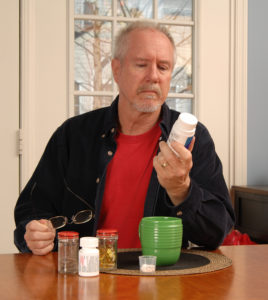Vitamins – Do I Really Need These?
A new recent study on the nutritional needs of seniors reveals that only a few seniors really need to take vitamins and supplements. The bulk of one’s nutrition can be gotten by improving diet. Donald B. McCormick, PhD, and Emory professor emeritus of biochemistry and the graduate program in nutrition and health scientists at Emory University conducted this study which challenges the widely held belief that as we get older, we need more vitamins.
“Vitamins and supplements do not cure the aging process!” says Dr. McCormick. His report is published in the magazine, Advances in Nutrition.
Not Getting Proper Nutrition? Why?
Duffy MacKay, ND, the Vice President of scientific and regulatory affairs for the Council for Responsible Nutrition, an industry group representing dietary supplement makers, agrees. But this is not always a reality for some older adults who have problems with dry mouth, appetite loss, ill-fitting dentures and other similar obstacles.
Some older adults don’t cook, don’t get out to the grocery store easily, and cannot spend money on expensive produce. Need help or have questions about your nutritional needs? Call AW Health Care (314) 726-5600.
What Nutrients May I Be Missing?
Vitamin D may be necessary for women past menopause. A recommended daily dose is 800 to 1,000 IUs.
Vitamin B12 is important for healthy nerve function. Fish, meat poultry, eggs, milk and milk products contain Vitamin B12.
Folate/Folic Acid helps avoid anemia. Good sources of folate are fruits and vegetables and fortified dry cereals
Calcium is important for strong bones. You can get enough calcium through 3 servings of dairy products daily. Or, try deep green vegetables like kale and broccoli.
Potassium is good for your bones, cell function and may help reduce high blood pressure and the risk of kidney stones. Eat fruits and vegetables, especially bananas, prunes, plums and potatoes.
Fiber helps promote a healthy digestive system. Foods rich in fiber are whole grains, beans, fruits and vegetables.
Omega-3 Fats, found primarily in fish, have been shown to help with rheumatoid arthritis, macular degeneration and Alzheimer’s. Other good sources of Omega-3 fats are flaxseed, soybeans, walnuts and canola oil.
Don’t Forget Water
Three to five glasses of water daily is recommended.
Flu Shots!
Don’t forget to get your flu shots. The flu is very contagious and can result in dangerous complications and possible hospitalizations for older adults.
Need help or have questions about your nutrition needs? Call AW Health Care (314) 726-5600!








Comments are closed.